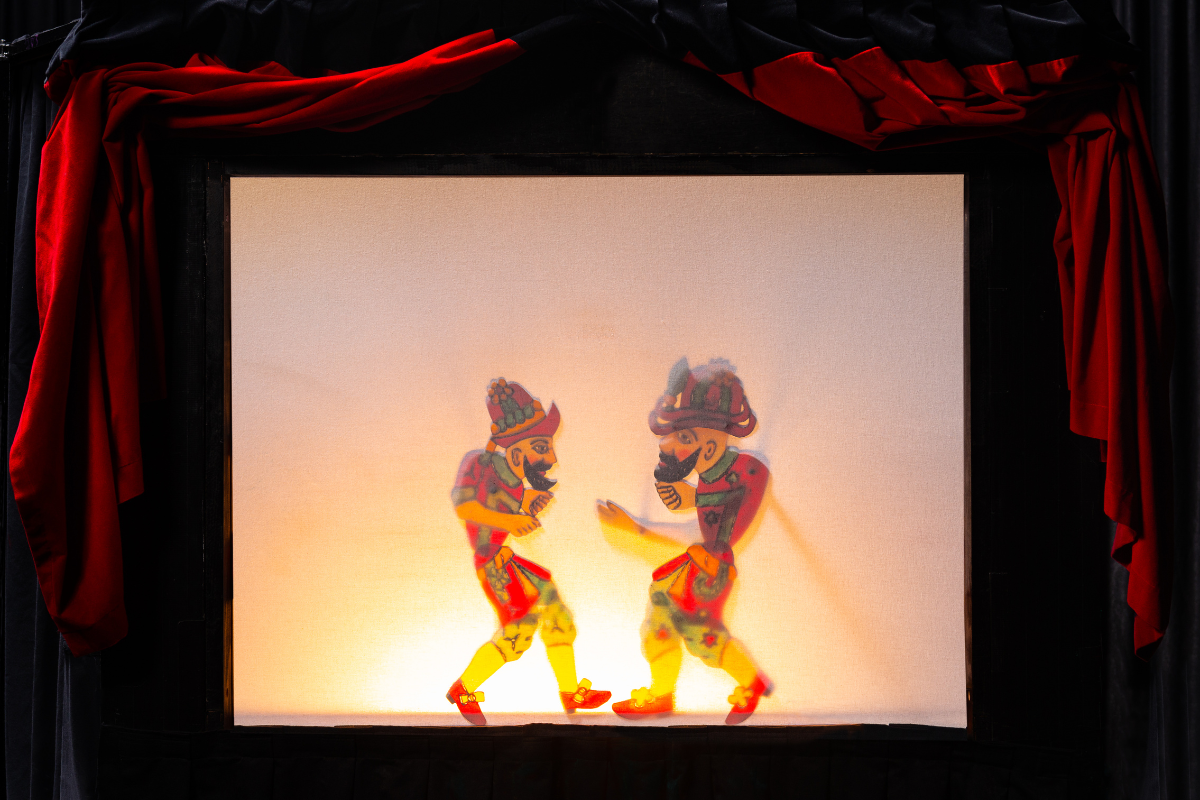Chinese Children's Game: Shadow Puppetry Delights-pí yǐng xì
In the rich tapestry of Chinese cultural heritage, shadow puppetry, known as "皮影戏" (pí yǐng xì) in Chinese, stands as a timeless form of entertainment that has captivated audiences for centuries. In this blog post, we will delve into the enchanting world of shadow puppetry and explore its enduring appeal as a cherished tradition for Chinese children.

The Art of Shadow Puppetry
Shadow puppetry is an ancient art form that originated in China over 2,000 years ago. Using intricately crafted puppets made of translucent leather, skilled puppeteers manipulate shadows 影子 (yǐng zi) cast on a screen to tell captivating stories. From epic legends to moral fables, shadow puppetry transports audiences to fantastical realms filled with adventure, romance, and wisdom.
影子 (yǐng zi), noun, shadow
Examples:
- The shadows danced on the wall.
墙上的影子跳舞了。
Qiáng shàng de yǐngzi tiàowǔle. - She was afraid of the dark shadows.
她害怕黑暗中的影子。
Tā hàipà hēi'àn zhōng de yǐngzi.

Cultural Significance
Beyond its entertainment value, shadow puppetry holds deep cultural significance in China. It serves as a repository of traditional folklore, preserving age-old tales passed down through generations. Through shadow puppetry, Chinese children learn about their cultural heritage 遗产 (yí chǎn), values, and beliefs, fostering a sense of pride and connection to their roots.
遗产 (yí chǎn), noun, heritage
Examples:
- The ancient temple is part of our cultural heritage.
古老的寺庙是我们文化遗产的一部分。
Gǔlǎo de sìmiào shì wǒmen wénhuà yíchǎn de yī bùfèn. - Shadow puppetry is an important cultural heritage for us.
皮影戏是我们重要的文化遗产。
Pí yǐng xì shì wǒmen zhòngyào de wénhuà yíchǎn.
Educational Value
Shadow puppetry is not only a source of entertainment but also an educational tool for Chinese children. Through storytelling and imaginative play, children develop language skills, creativity, and critical thinking abilities. Shadow puppetry sparks curiosity and imagination, encouraging children to explore the rich tapestry of Chinese culture and history.
Key Sentences:
- We enjoyed watching shadow puppetry during the festival.
我们在节日里喜欢看皮影戏。
Wǒmen zài jiérì lǐ xǐhuān kàn pí yǐng xì. - The shadow puppetry performance told a beautiful story.
皮影戏表演讲述了一个美丽的故事。
Pí yǐng xì biǎoyǎn jiǎngshùle yīgè měilì de gùshì. - Children are fascinated by the colorful characters in shadow puppetry.
孩子们对皮影戏中丰富多彩的角色着迷。
Háizimen duì pí yǐng xì zhōng fēngfù duōcǎi de juésè zháomí.
Related Articles
- Chinese Children's Game: Chinese Children's Passion for Chess-xiàng qí
- Chinese Children's Game: Slingshot Shooting-dǎ dàn gōng
- Chinese Children's Game: Jumping Rubber Band-tiào pí jīn
- Chinese Children's Game:Yo-Yo-liū liū qiú
- Chinese children's game: Rolling Hoops-gǔn tiě huán
- Chinese children's game: Handkerchief Tossing Game-diū shǒu juàn
- Chinese children's game: Eagle catching chicks-lǎo yīnɡ zhuō xiǎo jī
- Chinese children's game: Hacky Sack-tī jiàn zi